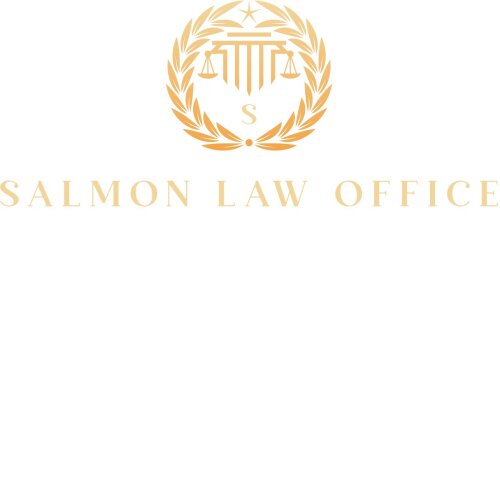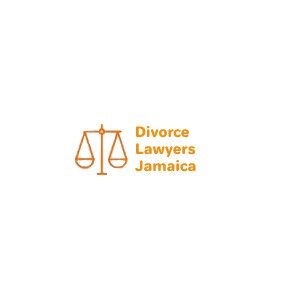Best Child Visitation Lawyers in Jamaica
Share your needs with us, get contacted by law firms.
Free. Takes 2 min.
Free Guide to Hiring a Family Lawyer
Or refine your search by selecting a city:
List of the best lawyers in Jamaica
About Child Visitation Law in Jamaica
Child Visitation law in Jamaica is designed to ensure that children maintain meaningful contact with both parents after a separation or divorce, in a manner that is in the child's best interest. The Jamaican legal system emphasizes the welfare of the child as the paramount consideration when making visitation arrangements. Courts are generally supportive of facilitating regular visits, allowing the non-custodial parent to maintain a relationship with their child unless there are compelling reasons to restrict this access.
Why You May Need a Lawyer
There are several situations where legal advice may be necessary in matters of Child Visitation in Jamaica:
- When there are disputes between parents regarding the frequency or conditions of visitation.
- If there are concerns about the child's safety or wellbeing during visits.
- If one parent wishes to modify the existing visitation order due to changes in circumstances.
- In cases where one parent is allegedly denying the other parent's visitation rights unlawfully.
- To navigate the legal processes and documentation when first establishing a visitation schedule.
Local Laws Overview
The core legal framework governing Child Visitation in Jamaica includes the Child Care and Protection Act and principles established in family law. Judges in family court have the discretion to make orders regarding visitation and are guided primarily by the best interests of the child. Key aspects of the law include:
- The protection of the child's welfare above all other considerations.
- Encouragement of amicable arrangements between parents outside of court.
- The use of mediation as a tool to resolve disputes amicably.
- The ability to enforce, modify, or terminate visitation rights through the court system if necessary.
Frequently Asked Questions
What is the standard process for obtaining visitation rights in Jamaica?
Typically, one petition the Family Court to establish regular visitation schedules. The court will require relevant information about the family, the child, and any concerns about the proposed visitation schedule.
How does the court decide on visitation arrangements?
The court primarily considers the child’s best interest, assessing factors such as the child's safety, emotional needs, parental capacity, and the child’s own wishes if they are old enough to express them.
Can visitation rights be denied?
Visitation rights may be denied or restricted if the court finds compelling evidence that the child's safety would be compromised during visits, such as in cases of abuse or neglect.
Is it possible to change an existing visitation order?
Yes, either parent can apply to the court to modify an existing visitation order if there has been a significant change in circumstances affecting the child or the parent's ability to comply with the order.
What happens if one parent violates a visitation order?
If a parent violates a court-ordered visitation arrangement, the affected party can return to court to seek enforcement of the order or to address non-compliance.
Is legal representation necessary for visitation disputes?
While not mandatory, having a lawyer can help navigate the complexities of family law, especially in contentious cases or where the other party has legal representation.
Can grandparents or other relatives apply for visitation rights?
Yes, relatives like grandparents may apply for visitation rights, but they must also demonstrate that their visitation is in the best interest of the child.
What alternatives exist to court for resolving visitation issues?
Mediation and negotiation are encouraged as alternatives to court proceedings, offering a more amicable and less adversarial way to resolve disputes.
Can visitation rights be granted to parents living abroad?
Yes, visitation arrangements can be tailored to accommodate long-distance interactions, including provisions for digital communication and extended visits during holidays.
What role does the Ministry of Justice play in child visitation issues?
The Ministry of Justice provides resources and sometimes mediation services to aid families in resolving visitation disputes in the interest of the child’s welfare.
Additional Resources
If you need additional support or information regarding Child Visitation in Jamaica, consider reaching out to:
- The Family Court for advice on the process of applying for visitation rights.
- The Jamaican Ministry of Justice, which can provide mediation services and further information.
- Legal aid clinics or services that offer affordable legal assistance for family law matters.
- Child's rights organizations that advocate for and provide assistance with upholding children’s rights and welfare.
Next Steps
If you think you require legal assistance for child visitation matters, the following steps will guide you:
- Gather all relevant documentation and information regarding your child's care and any previous legal orders related to custody and visitation.
- Consult with a legal professional who specializes in family law to discuss your situation and explore your options.
- Consider mediation or negotiation as initial steps to resolve visitation disputes outside of court.
- If court intervention is necessary, work with your lawyer to prepare and file the necessary legal documents.
- Stay informed about the legal procedures and your rights as a parent or guardian throughout the process.
Lawzana helps you find the best lawyers and law firms in Jamaica through a curated and pre-screened list of qualified legal professionals. Our platform offers rankings and detailed profiles of attorneys and law firms, allowing you to compare based on practice areas, including Child Visitation, experience, and client feedback.
Each profile includes a description of the firm's areas of practice, client reviews, team members and partners, year of establishment, spoken languages, office locations, contact information, social media presence, and any published articles or resources. Most firms on our platform speak English and are experienced in both local and international legal matters.
Get a quote from top-rated law firms in Jamaica — quickly, securely, and without unnecessary hassle.
Disclaimer:
The information provided on this page is for general informational purposes only and does not constitute legal advice. While we strive to ensure the accuracy and relevance of the content, legal information may change over time, and interpretations of the law can vary. You should always consult with a qualified legal professional for advice specific to your situation.
We disclaim all liability for actions taken or not taken based on the content of this page. If you believe any information is incorrect or outdated, please contact us, and we will review and update it where appropriate.
Browse child visitation law firms by city in Jamaica
Refine your search by selecting a city.














